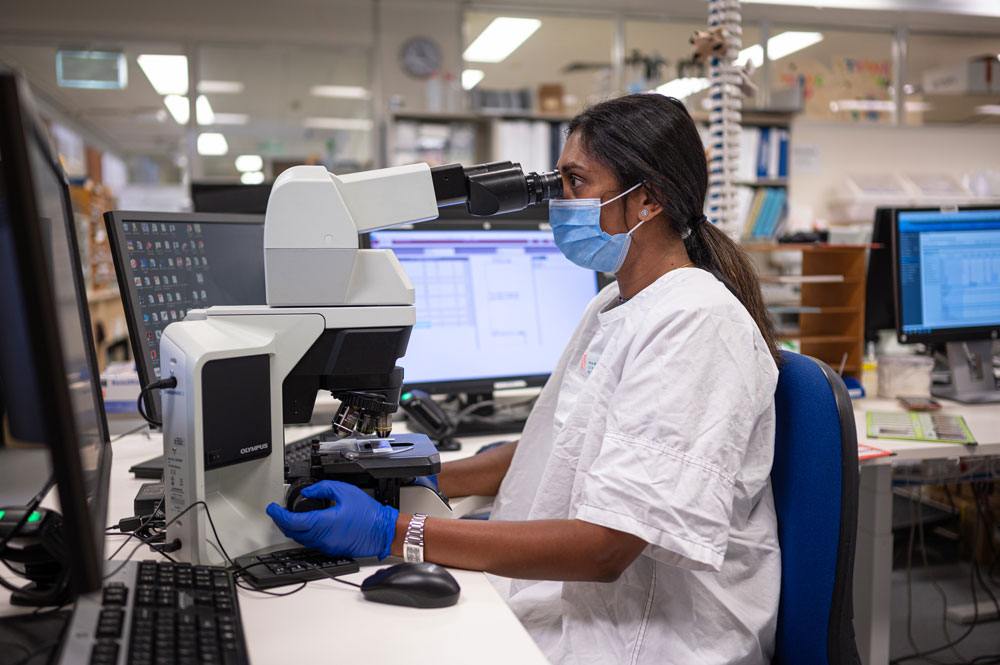How does a pathologist help us?
A pathologist is a medical practitioner that specialises in the study of the cause of disease and how these diseases affect the human body. Their role involves the examination of samples of tissue, blood and other bodily fluids. There are many kinds of specialisations within pathology, these include:
Blood banking and transfusions
Chemical pathology
Clinical informatics
Cytopathology
Dermatopathology
Forensic pathology
Haematology
Molecular genetic pathology
Neuropathology
Paediatric pathology
Pathologists can be found in many health settings, including public and private hospitals and clinics, independent laboratories, and other medical and research facilities. The significant role that pathologists play in our healthcare system means that their work helps us every day – when you’re getting a skin biopsy checked, having a throat swab when you’re sick, or taking part in a national screening program for disease such as for cervical cancer or bowel cancer.
How pathology saves lives?
Pathology plays a critical role in informing medical decisions and treatment plans every day. Timely results can save countless lives through the early detection of diseases and medical conditions, especially cancer. Cancer diagnoses are confirmed through pathology investigations, meaning that pathology is a vital tool for healthcare practitioners to provide appropriate care to their patients. In disease progression, pathology is also used to help monitor disease states and determine how to best manage various health conditions for a better quality of life.

Pathology’s contribution to the fight against cancer
All cases of cancer are diagnosed via pathology testing, including the diagnosis of cervical cancer, blood cancer and bowel cancer.
Australia has one of the best cervical cancer screening programs in the world, and consequently the lowest rate of cervical cancer globally. Cervical cancer symptoms often appear at the later stages of disease progression, which is why screening is so important. Estimates suggest that pathology screening methods for cervical cancer (combined with the HPV vaccination program) could reduce cervical cancer rates in Australia by as much as 20%.
Prostate cancer is also one of the most diagnosed cancers in Australian men, with pathology testing playing a vital role in the early detection of this disease via (prostate specific antigen) PSA testing.
Similarly, the National Bowel Cancer Screening program is essential in the early diagnosis of bowel cancer. The program uses a self-collected faecal sample that is sent to a laboratory to detect blood in faeces, which can be an early sign of bowel cancer, or another bowel issue. Anyone testing positive will be referred for further investigations. To diagnose bowel cancer a biopsy can be removed during an exploratory colonoscopy and be examined by a pathologist under a microscope, who determines whether cancerous cells are present in the patient’s sample.
Recognition of pathology
Pathology is also directly linked to chronic disease management, with the results of pathology tests used to diagnose and treat conditions such as diabetes, heart disease, heart attacks and cirrhosis of the liver.
For example, in Australia, 30% of adults have non-alcoholic fatty liver disease and it is set to become one of our most prevalent chronic diseases in the near future. One aspect of pathology here is that a new blood test may provide a safer, relatively pain-free alternative to liver biopsy for some people living with chronic liver disease.
